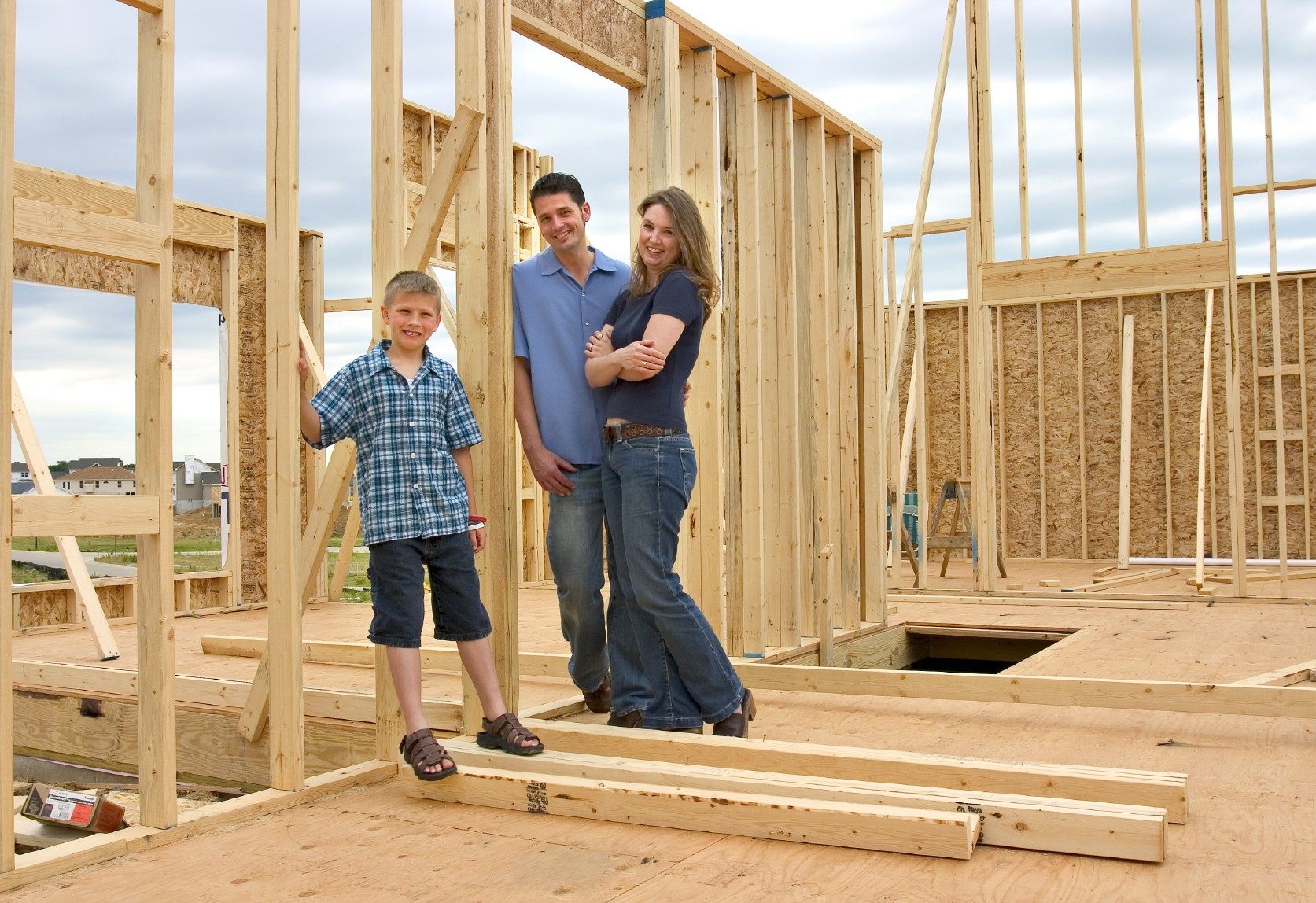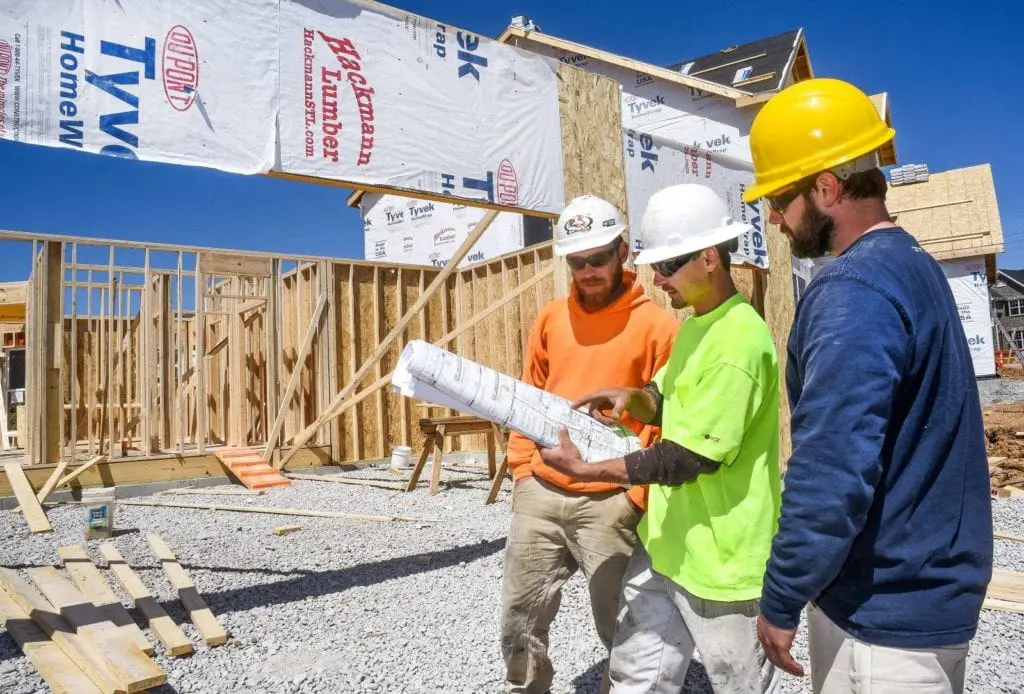Key Inquiries to Ask Your Home Contractor Prior To Beginning Construction
Prior to embarking on the building of your brand-new home, it's crucial to take part in a comprehensive dialogue with your home building contractor to ensure a seamless experience. Secret locations of emphasis include the home builder's experience and qualifications, which supply understanding into their expertise and dependability. Additionally, understanding the project timeline, consisting of essential milestones and backups for potential hold-ups, is vital. It is also important to acquire a detailed cost price quote and phased payment timetable to prevent economic shocks. Similarly crucial is a conversation regarding the quality of materials and subcontractors, as well as the warranties and aftercare solutions used. Yet what specific inquiries should you ask to cover all these bases effectively?

Building contractor's Experience and Credentials
Assessing a contractor's experience and qualifications is an important preliminary action in the home-building procedure. A contractor's history significantly influences the quality and reliability of the construction. Start by confirming the building contractor's permit and insurance coverage. Licensing guarantees the home builder complies with local guidelines and building regulations, while insurance policy safeguards against prospective responsibilities.
Take a look at the building contractor's portfolio of past tasks to evaluate their knowledge and design. Demand referrals from previous customers to gain understanding into their experiences, paying specific interest to the home builder's adherence to timelines, budget plan, and overall fulfillment - custom home builders in charleston sc. Moreover, check if the builder is connected with credible industry organizations, such as the National Association of Home Builders (NAHB), which represents a dedication to expert standards and proceeding education
Review the building contractor's experience with jobs comparable in range and complexity to yours. Specialized experience can be critical in resolving distinct obstacles and making sure a smooth construction procedure. Furthermore, ask about any kind of honors or recognitions that acknowledge their quality in the field.
Task Timeline and Milestones
Having established the value of evaluating a building contractor's experience and credentials, the following critical element to look at is the task's timeline and milestones. Begin by asking your builder for a thorough task timetable, laying out vital phases such as site prep work, foundation work, framework, electric and plumbing setups, and final assessments.
Along with comprehending the general timeline, ask about substantial landmarks within the task. Turning points act as checkpoints to analyze progression and make certain that each stage is completed to your complete satisfaction before moving on to the next. Examples of important landmarks include the conclusion of the structure, the setup of the roofing, and the final walkthrough before tenancy.
Moreover, go over the builder's backup plans for possible hold-ups brought on by unexpected scenarios, such as severe weather condition or supply chain disturbances. A professional contractor needs to have techniques in position to minimize these threats and keep the task on the right track. Clear communication pertaining to the timeline and landmarks will certainly enable you to handle expectations and keep a harmonious working partnership with your home builder.
Costs and Repayment Arrange
Recognizing the costs and payment schedule is critical for ensuring financial transparency and preventing unanticipated expenditures throughout the construction process. One important concern to ask your home contractor is for a comprehensive, itemized price quote.
Additionally, ask about the settlement schedule - custom home builders in charleston sc. Many building contractors follow a phased layaway plan, typically requiring an initial deposit adhered to by payments tied to particular landmarks, such as structure completion, framing, and last inspection. Make clear the specific amounts and due dates for these settlements to ensure you can handle your funds as necessary

Last but not least, it's a good idea to go over any kind of fines or costs connected with late repayments or hold-ups. Recognizing these terms upfront will assist you prevent economic pitfalls and maintain a healthy working partnership with your builder throughout the building process.
Materials and Subcontractors
When intending your brand-new home, the option of products and the high quality of subcontractors are crucial to the project's success. Begin by asking your builder about the types of products they prepare to utilize.
Following, explore the selection process for subcontractors. Ask just how the home builder vets and works with subcontractors, as their know-how directly affects the high quality of work. Are they certified, guaranteed, and experienced? The solution to these concerns will certainly offer you self-confidence in the proficiency and integrity of the team functioning on your home.
On top of that, request a detailed checklist of the subcontractors entailed, including their specific duties. This transparency allows you to research their track records and previous work. It's also prudent to ask just how the builder takes care of subcontractors to ensure prompt and high-quality conclusion of tasks.
Finally, make clear how interaction will be handled throughout the project. Routine updates on products and subcontractor efficiency are important for maintaining trust and ensuring that your home is built to your requirements.
Guarantees and Aftercare Solutions
Safeguarding detailed guarantees and durable aftercare solutions is vital for the long-term complete satisfaction and upkeep of your new home. A solid warranty can safeguard you versus unanticipated concerns that might occur after building is full. It is important to recognize the scope and duration of the warranties offered. Generally, home builders give a 1 year warranty covering products and handiwork, a two-year guarantee for mechanical systems like plumbing and electrical, and a ten-year architectural guarantee.
A trustworthy contractor should supply a clear procedure for attending to post-construction issues. Comprehending how the building contractor takes care of guarantee cases and their responsiveness to aftercare demands will provide you peace of mind.
If the builder provides a maintenance guidebook for your home and whether they perform post-completion evaluations,Ask. These inspections can be instrumental in determining official source prospective issues early and making certain that your home stays in optimal condition. By extensively vetting the warranties and aftercare services, you can guarantee that your financial investment is shielded, and your new home remains a source of happiness and convenience.
Conclusion

Before embarking on the building of your brand-new home, it's imperative to engage in an in-depth dialogue with your home contractor to make sure a seamless experience. One crucial question to ask your home building contractor is for an in-depth, itemized price quote. Generally, home builders provide an one-year warranty covering materials and craftsmanship, a two-year guarantee for mechanical systems like plumbing and electric, and a ten-year structural warranty.
Ask if the builder gives an upkeep guidebook for your home and whether they carry out post-completion assessments.Thoroughly vetting a home contractor by inquiring about their experience, qualifications, job timelines, materials, subcontractors, and prices, as well as service warranties and aftercare services, is essential for guaranteeing an effective building procedure.